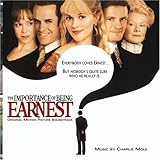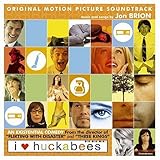
Average Reviews:

(More customer reviews)Are you looking to buy
127 Hours: Music from the Motion Picture? Here is the right place to find the great deals. we can offer
discounts of up to 90% on
127 Hours: Music from the Motion Picture. Check out the link below:
>> Click Here to See Compare Prices and Get the Best Offers
127 Hours: Music from the Motion Picture ReviewThe true story of Aron Ralston is one of human fortitude, bravery, defiance in the face of death, and incredible bad luck. A young and healthy daredevil with a penchant for extreme sports, Ralston took a brief weekend hiking trip to the canyons around Moab, Utah in the summer of 2003, and had the singular misfortune of suffering an accident which left his right arm pinned against a canyon wall by a large boulder, with no way of extricating it. After five lonely days, and hovering close to death, Ralston eventually took the unimaginable decision to amputate his own arm - with no anesthetic - using nothing more than a blunt Swiss Army knife, and staggered out of the canyon, where he was rescued and ultimately made a full recovery.
Director Danny Boyle's film 127 Hours, which stars James Franco as Ralston, chronicles these events in graphic detail (so much so that patrons have been fainting in the aisles during the amputation scene), but is reported to be a positive and life-affirming film which celebrates the human spirit and the will to survive. For the music, Boyle once again turned to Indian composer A.R. Rahman, who won a Best Score Oscar for their last collaboration on Slumdog Millionaire. As was the case with Rahman's first American feature, Couples Retreat, 127 Hours again confirms that Rahman is a composer of great talent and creativity who is capable of much, much more than happy songs and Bollywood dance numbers.
Having said that, 127 Hours is certainly not a score which will appeal to everyone. In addition to the orchestra, there is a great deal of rock music, and many electronic and synthetic enhancements, some of it quite harsh and abrasive, which will likely turn off listeners not accustomed to such things. On the other hand, the 26 minutes or so of original score on the CD also contains some quite beautiful, softly textured music. It's not a score which will impress with its soaring themes, but it has a quiet, hypnotic quality that will get under your skin if you let it.
The opening cue, "The Canyon", is a beautiful and idyllic piece which builds from a soothing clarinet solo to encompass a soft string section and a subtle percussion beat which is quite lovely, and accuracy reflects the beauty of the Utah scenery. The actual melody reminds me of something Thomas Newman might have written in one of his more wistful moments, and let me assure you that this is absolutely intended to be a compliment.
The three "Liberation" cues form the cornerstone of the rest of the score, and all three of them have an upbeat urban groove, reflecting Ralston's youthfulness and extreme sports attitude. Rahman uses electric guitars and gritty synths to create a series of powerful percussive beats; they are all based around similar repeated rhythmic guitar patterns, but become progressively more ragged and insistent as Ralston's situation becomes more desperate. In "Liberation in a Dream", electric guitars and strings combine with a full rock drum kit and build to a loud, enthralling finale, while during "Liberation" - the conclusive cue - the music is chaotically euphoric, celebrating the peculiar emotions Ralston must have been feeling, joyfully escaping from his rocky prison, but in horrific pain and leaving a major part of his anatomy behind.
"Touch of the Sun" combines contemplative acoustic guitar chords and almost hallucinatory electronic samples into something which is simultaneously pretty, lonely, and a little unnerving. As the cue progresses an electric guitar accompanied by a faraway synth choir takes over, performing a more fleshed-out thematic statement, but altering the mood into something a little darker. "Acid Darbari" introduces a sample of a native chant, tinkling bells and chimes, a solo cello, a soft string wash, and a hooting ethnic flute, adding another layer of slightly hallucinogenic mystery to the situation. The effect is very effective, and seems to comment both on the increasingly dangerous and tragic situation in which Ralston finds himself, and some of the musical conventions of the Utah locale.
"R.I.P." features a shimmering sampled electronic effect which seems to musically suggest a the power of a hot desert sun, which combines excellently with a wordless vocalist lamenting for Ralston's soon-to-be-missing limb, and an urgent ethnic percussive beat to add tension to the scene. A frantic string action ostinato overlaid with low brass concludes the piece on a feverish note. It's also worth noting that one of the vocalists at the end of this cue sounds very much like Rahat Nusrat Fateh Ali Khan, the sacred Qawwali vocalist James Horner incorporated into his score for The Four Feathers.
The songs are a mixed bag, and really need to be programmed out in order to appreciate Rahman's score properly. The opening track - "Never Hear Surf Music Again" - is quite horrific, a grating, grinding, groaning thing which is quite sexually explicit in some of its lyrics before going on to repeat the name of the state of Ohio 75 times, and will result in most listeners scrambling for the skip button. Others, such as Bill Withers' soothing groove "Lovely Day" and Plastic Bertrand's classic 1977 pop-punk effort "Ça Plane Pour Moi", never outstay their welcome. Sigur Ros's "Festival" is decent enough if your tastes run to 9-minute songs for suicidal Icelanders, while "If I Rise" is a new original work by Rahman performed by Dido which has been tipped for Oscar consideration.
I liked 127 Hours quite a bit, but it's by no means a conventional film score, and as I mentioned before I can imagine a number of listeners being wholly put off by the strong electronic and rock elements which run through virtually the entire score. One thing it does do, however, is further prove that Rahman is perfectly capable of having a long and successful career in Hollywood in multiple genres, should he want one. While his Oscar win may have been for a relatively minor work in terms of his own filmography, the one thing he is not is a flash-in-the-pan or a lucky composer merely attached to the right project at the right time. He is the real deal.
127 Hours: Music from the Motion Picture OverviewWant to learn more information about
127 Hours: Music from the Motion Picture?
>> Click Here to See All Customer Reviews & Ratings Now



